Unlike in the United States, where the Constitution was written down by the Founding Fathers nearly 250 years ago and is regarded as sacrosanct by many Americans, the British Constitution has never been formally inscribed but instead has evolved over centuries. The Supreme Court in Parliament Square can only decide if the government has acted within the law as it stands and cannot decide what that law should be. The Court does not have the power to overrule the politicians who sit in the Palace of Westminster opposite. Parliament always has the ultimate authority under the British system.
Any proposal put to Parliament has to go through three stages before it becomes law. Most of the power rests in the House of Commons, which has 650 MPs from around the United Kingdom England, Scotland, Wales and Northern Ireland). For historical reasons Ireland is divided into two, the southern being a republic, the north being part of the UK. The maximum life of any government in the UK is five years and the largest party elected to parliament gets to form a new government.
This happened on 4 July 2024 when the sitting Conservative Party was defeated by the Labour Party which formed the government. Keir Starmer, the leader of the Labour Party, became Prime Minister and took up residence at 10 Downing Street while Rishi Sunak, the previous incumbent, handed over to him. Starmer is a lawyer by training and was once Director of Public Prosecutions. Sunak is a businessman and is the richest person to have held the office and the first from an Indian background.
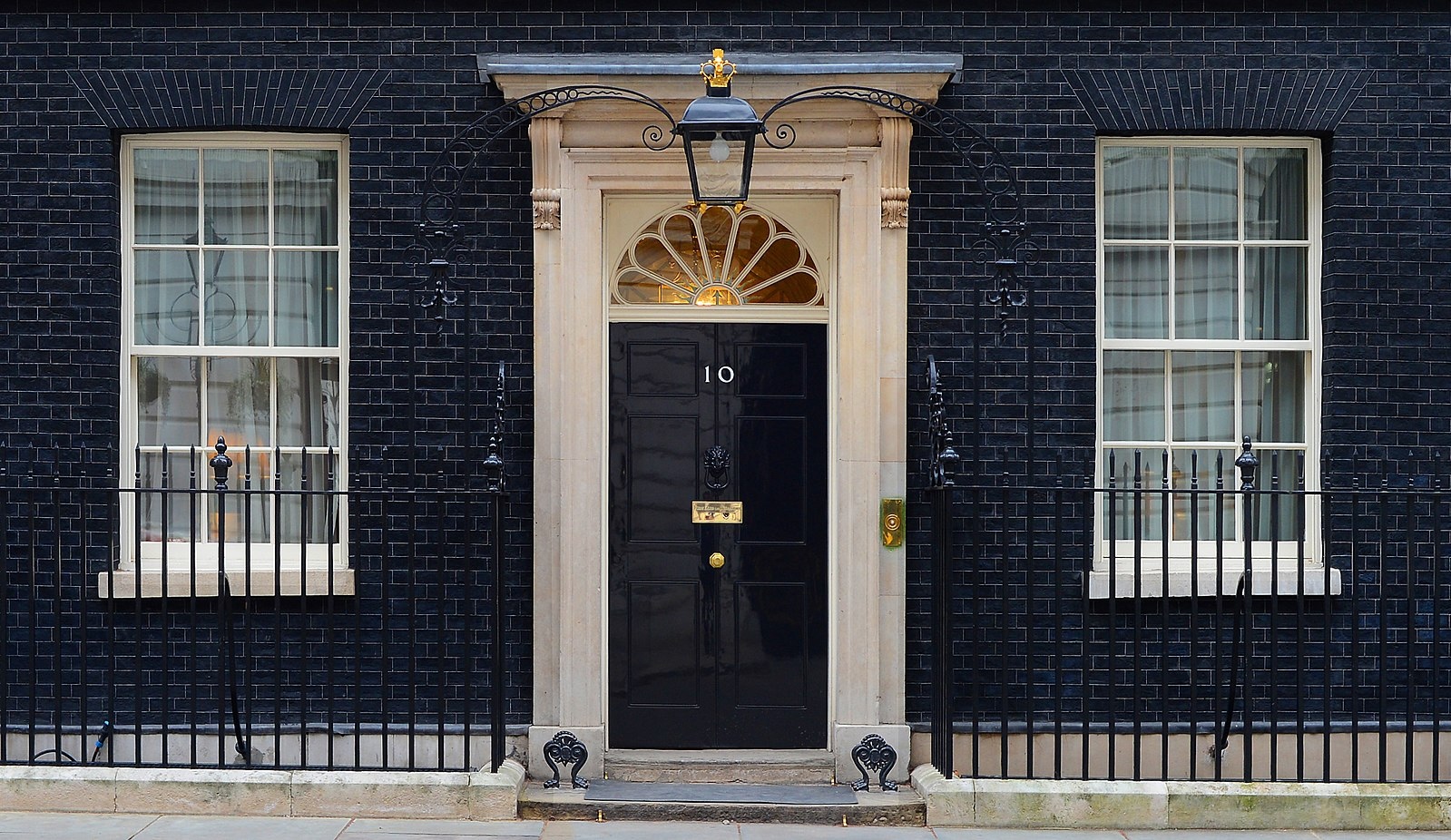 Entrance to 10 Downing Street, home of UK Prime Ministers. Photo Credit: © Sergeant Tom Robinson RLC via Wikimedia Commons.
Entrance to 10 Downing Street, home of UK Prime Ministers. Photo Credit: © Sergeant Tom Robinson RLC via Wikimedia Commons.
A new Prime Minister is not chosen by the people but by their party. After a general election, the leader of the largest party tells the Monarch that they are ready to from a government. The new – or former (if the outgoing party has won enough seats to remain in government) – Prime Minister then moves into 10 Downing Street with their family. He (or she) can be ruthlessly turfed out or obliged to resign if they lose the confidence of that party – or of the electorate. This happened to two famous Conservative Prime Ministers: Winston Churchill, whose party lost the 1945 election and Mrs Thatcher, whose party felt that a change of leader was needed if they were to win the next election. Her successor John Major won a somewhat unexpected victory over the Labour Party in 1992.
Ten Downing Street is a fairly modest house about a mile from Buckingham Palace, the royal home on the other side of Saint James’s Park in Central London. The street is named after the man who built it, Sir George Downing, a soldier and diplomat under both Oliver Cromwell, who ran England as a republic, and the man who succeeded him, King Charles the Second, who returned to the throne in 1660 when the monarchy was restored. Only three houses remain in this street – 10, the home of the Prime Minister, 11, the home of the Chancellor of the Exchequer (the UK’s chief finance minister) and 12, the home of the government’s Chief Whip, who is responsible for discipline in the ruling party.
Once a bill has been passed by the House of Commons and has achieved a sufficient majority of MPs who vote for it, it is then sent to the House of Lords, the UK’s upper chamber, which has 783 members. They are not elected but appointed to it by the government. The House of Lords also includes bishops of the Church of England and a small number of hereditary peers who sit in it because they were born with an hereditary title. The Lords was last reformed in 1999 when the right of most – but not all – hereditary peers to sit in it was abolished. Now it is largely used as a revising chamber and, if it does not like a bill passed to it by the House of Commons, they can send it back.
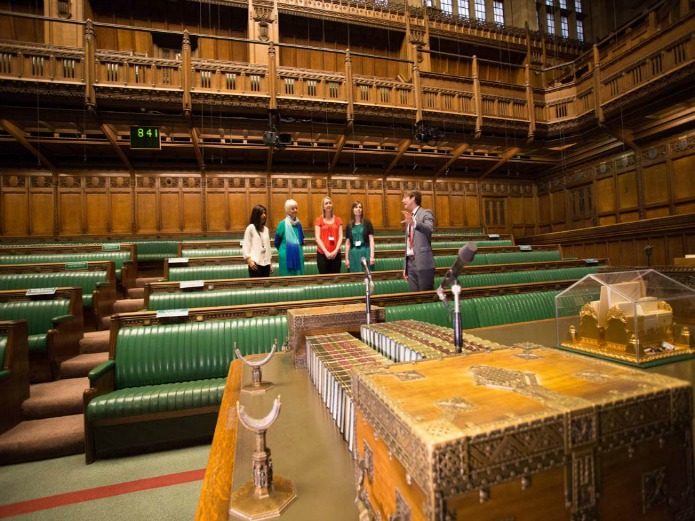 Palace of Westminster – Part view of ornate Victorian gothic architecture of the iconic Big Ben clock tower at the Houses of Parliament, designed by Sir Charles Barry and Augustus Pugin.
Palace of Westminster – Part view of ornate Victorian gothic architecture of the iconic Big Ben clock tower at the Houses of Parliament, designed by Sir Charles Barry and Augustus Pugin.
The Commons can then return it to the Lords, who are now obliged to pass it. This process takes around six months in all and limits the power of the Lords to simply delay laws sent to it by the Commons. There have been various proposals for further reform of the House of Lords since the last changes in 1999 but no government has found the time – or the inclination – to pursue them. At present, it is the only upper chamber in the world that is larger than its lower chamber and is the second-largest legislative chamber in the world after that of the People’s Republic of China.
The Royal ‘Veto’ is never used
The final stage of any bill passing through the Houses of Parliament is to send it to the monarch, who has to agree to all measures passed by Parliament. The sovereign does this by expressing the royal assent to laws sent to him. In theory, this gives the power of veto to the king or queen. In practice, this veto has not been used for over 300 years since the Scottish Militia Bill, which did not get Royal assent from Queen Anne in 1708. Even this ‘veto’ was used by her on the advice of her government. Today the monarchy is non-political and members of the royal family do not vote in elections.
The Date of UK General Elections
After the 1911 Parliament Act was passed the life of any government in the UK was reduced from seven to five years. The 1911 Act also limited the power of the Lords to stop legislation passed by the Commons. The Prime Minister must call a General Election before five years have passed but the precise date of the election is decided by him or her. The decision on when to ‘go to the country’ is thought to be one reason for the success of PMs like Margaret Thatcher and Tony Blair.
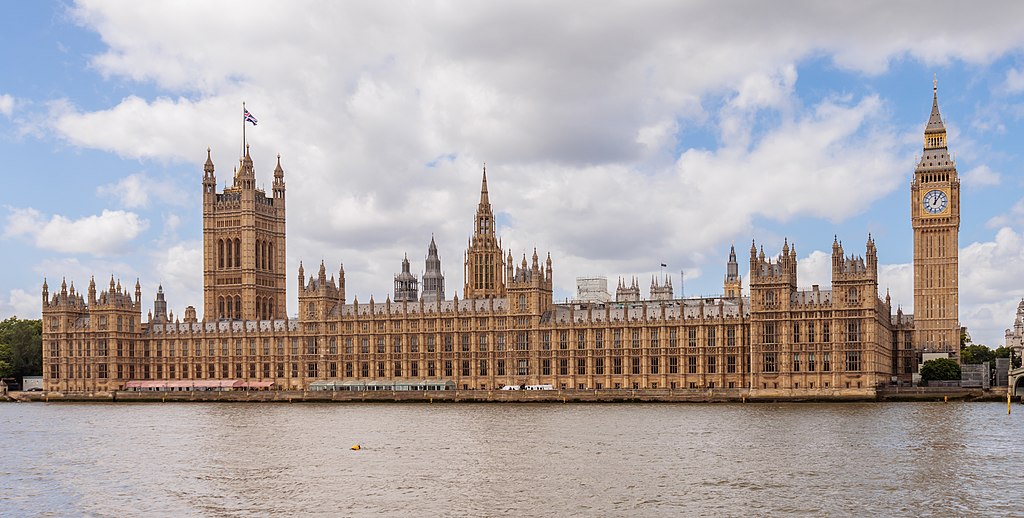 Palace of Westminster, Big Ben, and Westminster Bridge as seen from the south bank of the River Thames. Photo Credit: © Terry Ott via Wikimedia Common.
Palace of Westminster, Big Ben, and Westminster Bridge as seen from the south bank of the River Thames. Photo Credit: © Terry Ott via Wikimedia Common.
Why on a Thursday?
A general or by-election, when an MP is replaced in a constituency because of death or resignation, is usually held on a Thursday. The reason for this is a mystery but may have much to do with the British tendency to visit the pub on payday (Friday) and the priest’s sermon on a Sunday, which might have an undue effect on people’s voting habits. There is no requirement to hold an election on Thursday but, sure enough, 4 July 2024 fell on that day. Thursday is the traditional day for voting in Britain.
Women Gaining the Vote and Three Female Prime Ministers
Women were first granted the right to vote in 1918 but did not achieve full equality in the franchise until ten years later. The UK has had three female Prime Ministers: Mrs Thatcher, who held office for eleven and a half years (the longest since electoral reform in 1832), Theresa May, who unveiled a statue of Elizabeth Garret Fawcett, a campaigner for female suffrage, and Liz Truss, who lasted a mere forty-three days. She also lost her parliamentary seat in Norfolk at the 2024 general election.
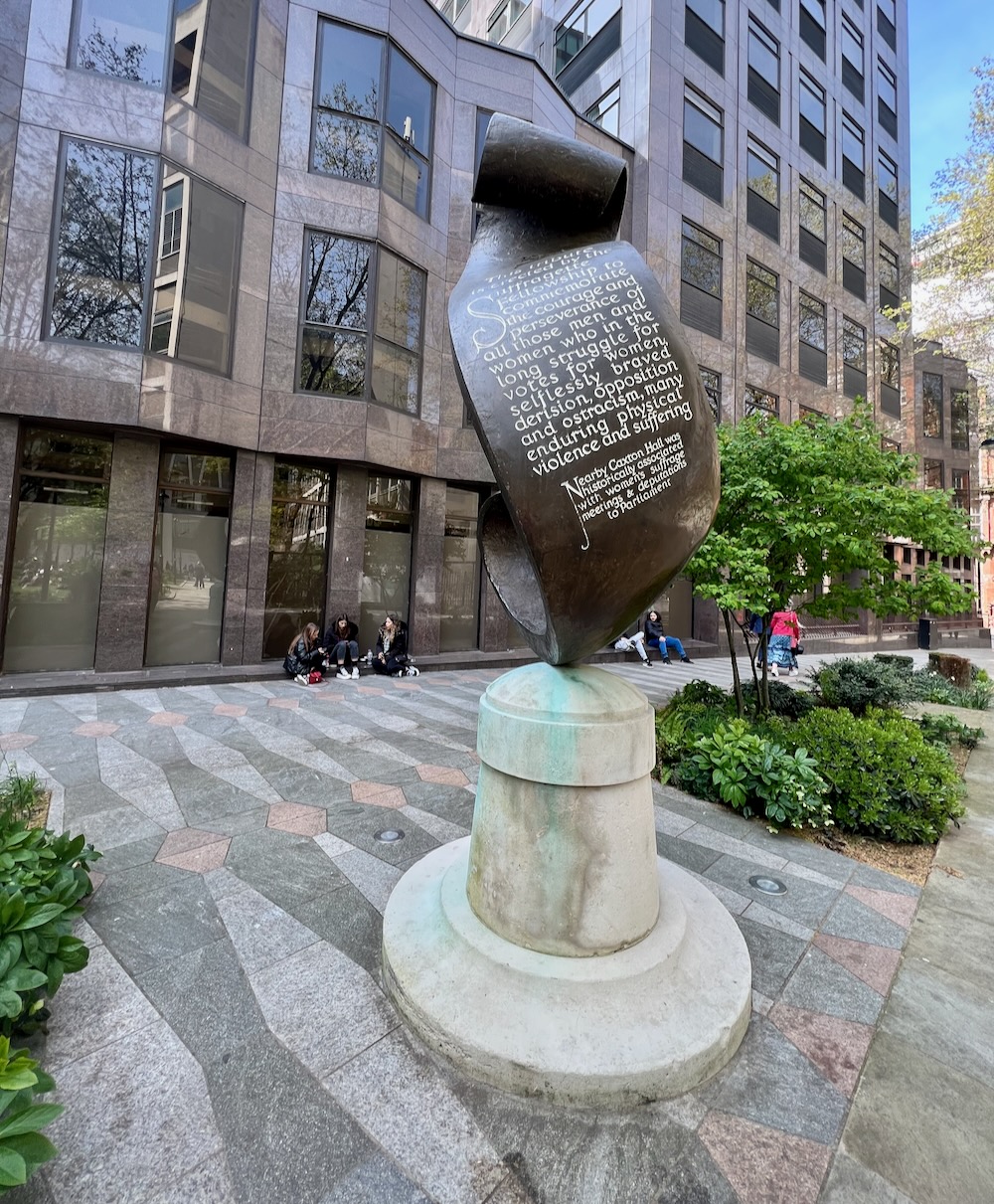 Suffragette Memorial in London. Photo Credit: © Ursula Petula Barzey.
Suffragette Memorial in London. Photo Credit: © Ursula Petula Barzey.
Remuneration for Politicians
Currently, a Minister of Parliament’s (MP) salary is £91,346. The Prime Minister’s salary is almost double that of an ordinary MP at £164,951. Members of the House of Lords are not paid a salary but can claim an attendance allowance of £323 a day plus travel expenses if they live outside Great London.
Voting Age and Turnout
All people who have passed their eighteenth birthday are entitled to vote in general and by-elections. The exceptions are those who are disqualified from voting under the Elections Act 2022 which disqualifies people convicted of ‘an intimidatory offence motivated by hostility towards a candidate or campaigner’. The 2024 general election was the first to use voter ID laws introduced in 2022.
Between 1922 and 1997 voter turnout never fell below seventy per cent, but in 2001 it dropped to just under sixty percent. Seventy-two percent of Britons voted in the Brexit referendum but this was still below the turnout in the general election of 1950 which was nearly eighty-four percent. The turnout in British general elections is usually between two-thirds and three-quarters of those entitled to vote.
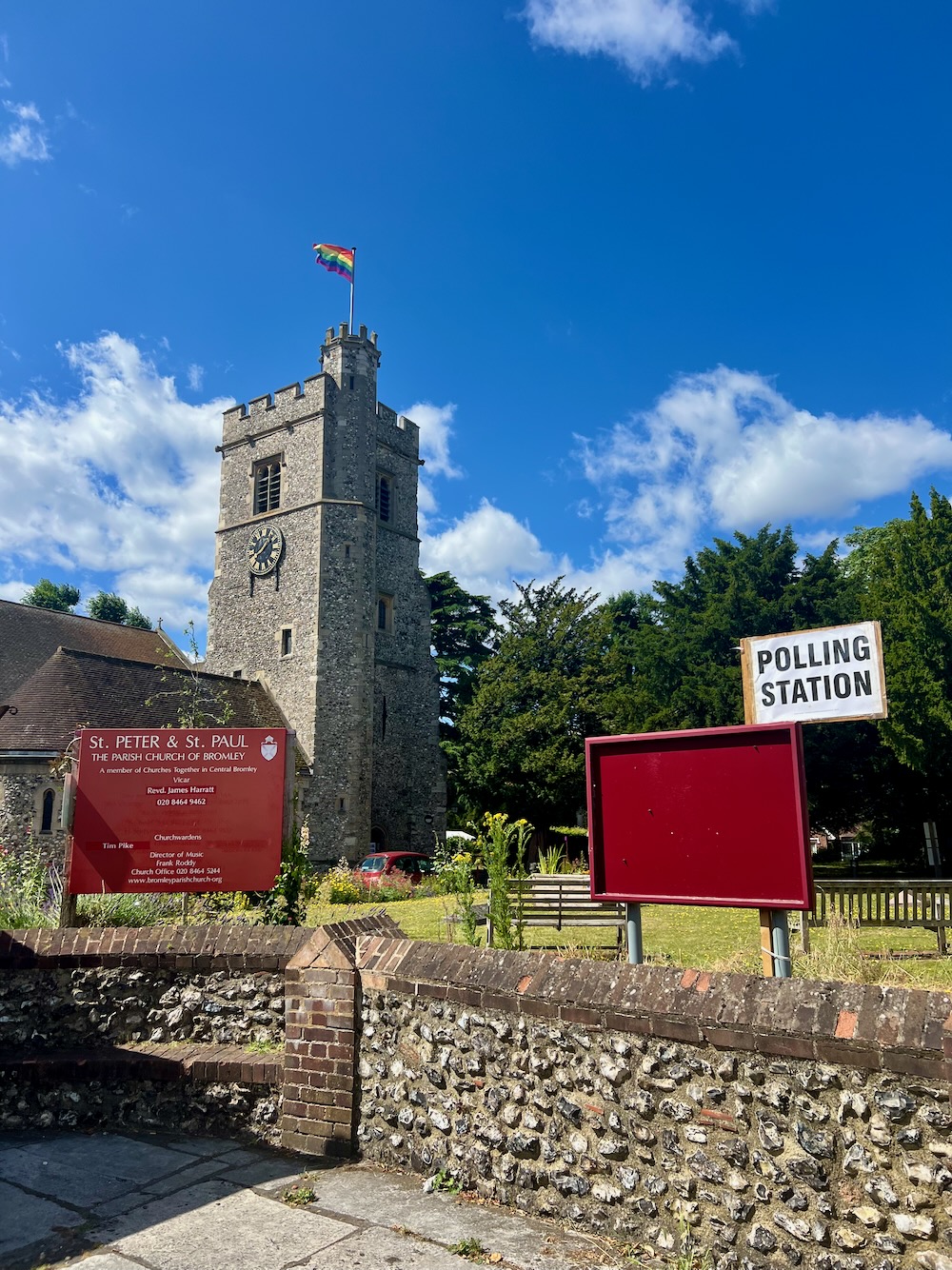 Typical Polling Station for UK General Elections. Photo Credit: © Ursula Petula Barzey.
Typical Polling Station for UK General Elections. Photo Credit: © Ursula Petula Barzey.



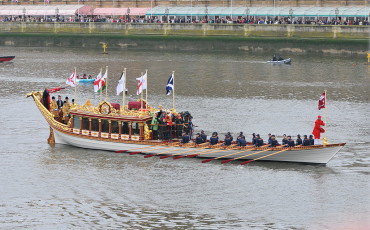


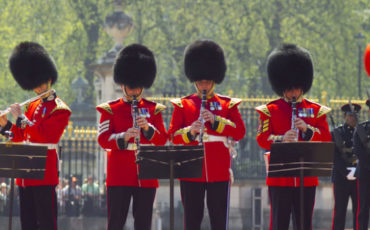
Leave a Reply